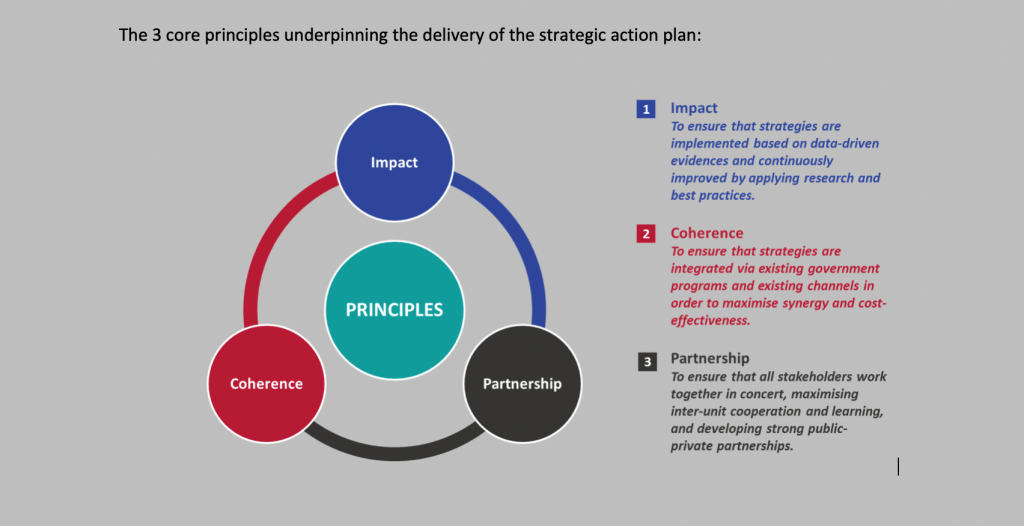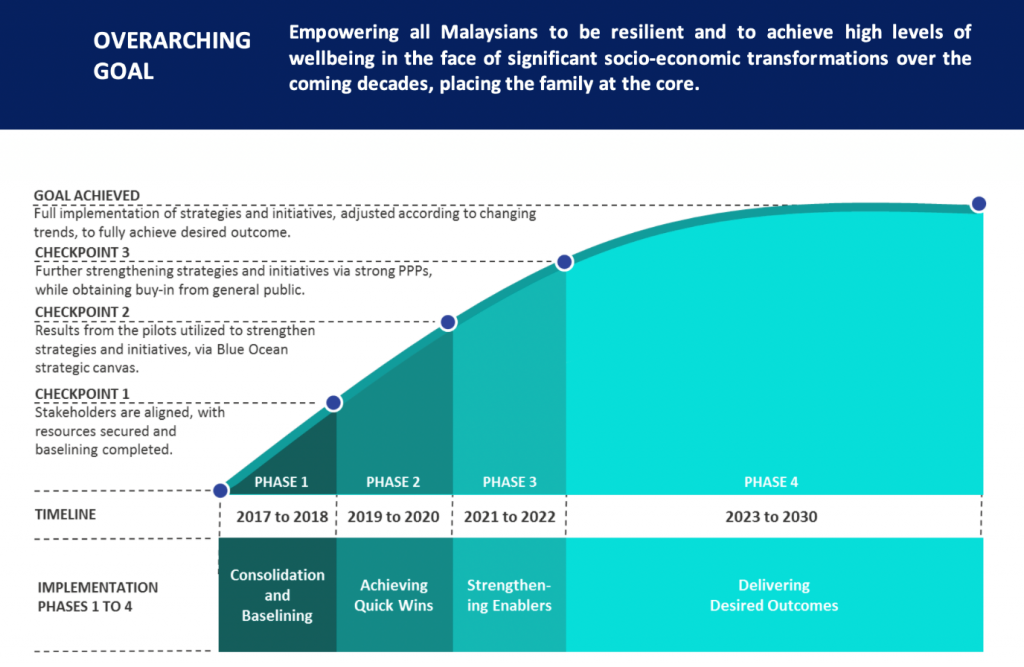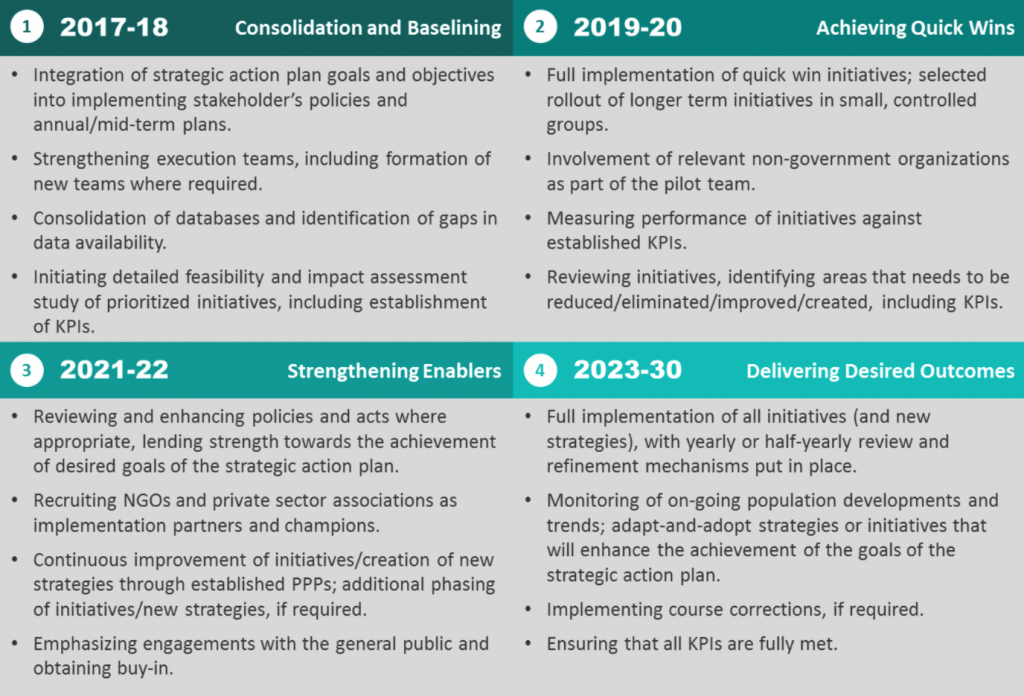Malaysia Population Research Hub

The delivery of the strategic action plan can be implemented in phases, guided by the following 3 core principles: (1) Impact. To ensure that the strategies are implemented based on data-driven evidences and continuously improved by applying research and best practices; (2) Coherence. To ensure that strategies are integrated via existing government programs and existing channels wherever possible, in order to maximise synergy and cost-effectiveness; (3) Partnership. To ensure that all stakeholders work together in concert, maximising inter-unit cooperation and learning, and developing strong public-private partnerships wherever possible.


Strategic Roadmap
The overarching goal of the strategic action plan is to be delivered in 4 phases.
Phase 1: Consolidation and Baselining will be implemented in 2017 and 2018. Under Phase 1, stakeholder alignment takes place, and the required resources are allocated, while the baselining of key performance indicators for selected initiatives is conducted.
Phase 2: Achieving Quick Wins will be implemented in 2019 and 2020. Under Phase 2, initiatives that have been identified as Quick Wins (see following sections) are implemented, such that some positive results can be delivered to bolster the desired outcomes of RMK 11 and Vision 2020. Pilot implementations of remaining initiatives are also conducted under this phase.
Phase 3: Strengthening Enablers will be implemented in 2021 and 2022. Under Phase 3, results from the pilot implementation are used to improve the full implementation in Phase 4. In addition, specific enablers, such as regulatory and legislative measures, as well as buy-in for PPPs, are strengthened.
The final phase, Phase 4: Delivering Desired Outcomes will be implemented in 2023 to 2030. Under this phase, all remaining initiatives are fully implemented and continuously improved, via a combination of data feedback, trend spotting, and innovation scouting, such that best practices are adapted and adopted in order to meet all targets specified under this strategic action plan.
Implementation Phases
The key actions to be undertaken under each phase is summarised in the diagram below.

National and International Alignments
The strategic recommendations support and complements existing policies such as the National Family Policy, National Social Policy, National Policy on Women, National Child Policy, National Policy for Older Persons, and the Disabled Persons Policy. It also embodies the spirit of the Federal Constitution, Rukun Negara, and the goals of Vision 2020. In particular, the recommendations have been aligned with the focus areas and strategies outlined under the 11th Malaysia Plan, as follows:
Enhancing Inclusiveness Towards an Equitable Society
Improving Wellbeing for All
Accelerating Human Capital Development for an Advanced Nation
Pursuing Green Growth for Sustainability and Resilience
Strengthening Infrastructure to Support Economic Expansion
Re-engineering Economic Growth for Greater Prosperity
This recommendations and initiatives are also guided by the following U.N. SDG 2030 targets:
